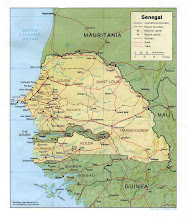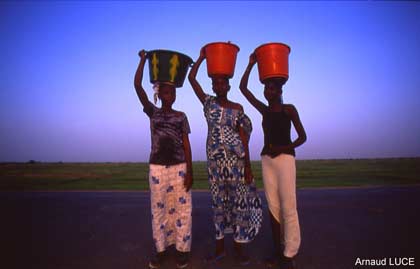This according to Al Jazeera:
Senegal has recalled its ambassador to Iran over an arms scandal in which military-grade weapons were shipped into the region allegedly bound for neighbouring Gambia.
Madicke Niang, the Senegalese foreign minister, made the announcement in a statement on Tuesday, saying the explanations Iran had given for the affair were "not satisfactory".
"True to the need for peace and security which should guide ties between states, and deeming unsatisfactory the explanations provided by the Iranian side in this affair, Senegal has decided to recall its ambassador to Iran for consultations as of today," the statement said.
Senegalese analysts have said the arms may have been bound for Senegal's restive southern Casamance region, where rebels have waged a low-level uprising against the government since 1983.
The Senegalese move comes just one day after Manouchehr Mottaki, the Iranian foreign minister, was sacked while on a two-day visit to the West African state, partly to explain the affair.
Tuesday, December 14, 2010
Friday, December 3, 2010
IMF gives mildly positive report
The International Monetary Fund is advising Senegal's government on a volunary basis. It had this report today:
"Economic growth in Senegal was slowed in recent years by the food and fuel price shocks and the global financial crisis. Indicators point to an ongoing economic recovery, which appears to be strengthening.
"Real GDP growth is projected to increase to 4 percent in 2010 and 4.4 percent in 2011 after averaging 2.7 percent in 2008 and 2009. Inflation turned positive in June 2010 for the first time in more than a year, and has picked up mainly because of higher food prices. The overall fiscal deficit is expected to reach 4.8 percent of GDP in 2010, broadly in line with the budget target.
"The impact of the global financial crisis on workers’ remittances and foreign direct investment (FDI) has been smaller than originally expected. The current account deficit is projected to change little in 2010 and remain at about 8 percent of GDP.
"Following progress in macroeconomic and social outcomes since the mid-1990s, going forward the main challenge for Senegal will be to achieve higher growth in order to further reduce poverty and make progress toward the Millennium Development Goals. During the past 15 years, real per capita GDP growth in Senegal was more than 2 percent lower a year than in the best-performing, non-oil exporting countries in Sub-Saharan Africa. Senegal lags these countries in a number of areas including infrastructure, non-price competitiveness, and strength of fiscal institutions, as well as factors such as governance, the quality of institutions, and financial market development."
"Economic growth in Senegal was slowed in recent years by the food and fuel price shocks and the global financial crisis. Indicators point to an ongoing economic recovery, which appears to be strengthening.
"Real GDP growth is projected to increase to 4 percent in 2010 and 4.4 percent in 2011 after averaging 2.7 percent in 2008 and 2009. Inflation turned positive in June 2010 for the first time in more than a year, and has picked up mainly because of higher food prices. The overall fiscal deficit is expected to reach 4.8 percent of GDP in 2010, broadly in line with the budget target.
"The impact of the global financial crisis on workers’ remittances and foreign direct investment (FDI) has been smaller than originally expected. The current account deficit is projected to change little in 2010 and remain at about 8 percent of GDP.
"Following progress in macroeconomic and social outcomes since the mid-1990s, going forward the main challenge for Senegal will be to achieve higher growth in order to further reduce poverty and make progress toward the Millennium Development Goals. During the past 15 years, real per capita GDP growth in Senegal was more than 2 percent lower a year than in the best-performing, non-oil exporting countries in Sub-Saharan Africa. Senegal lags these countries in a number of areas including infrastructure, non-price competitiveness, and strength of fiscal institutions, as well as factors such as governance, the quality of institutions, and financial market development."
Subscribe to:
Posts (Atom)


